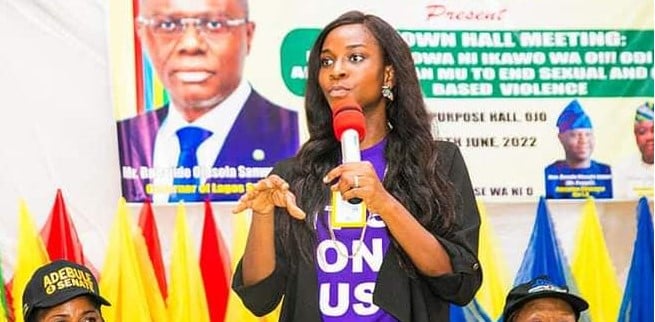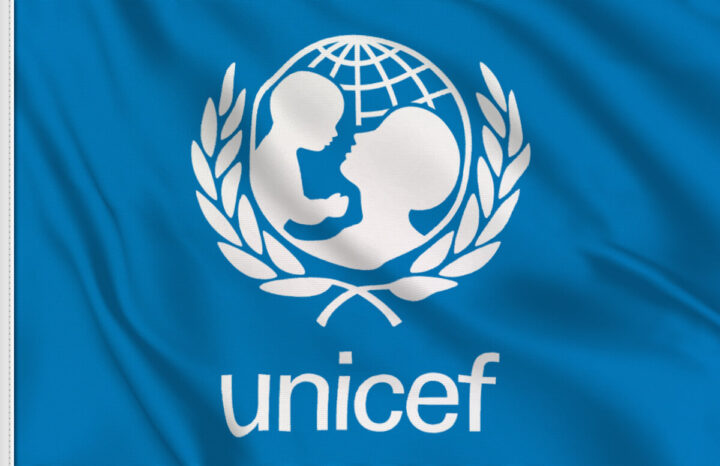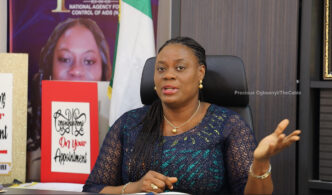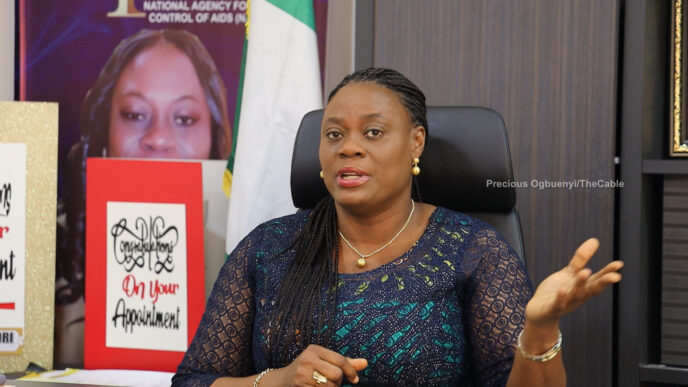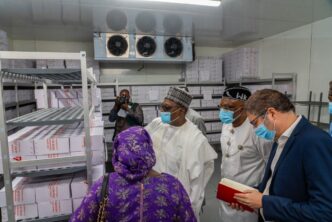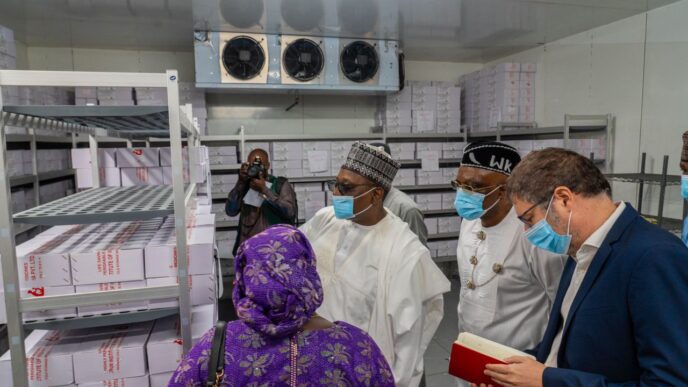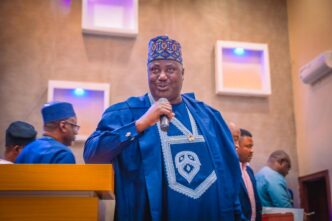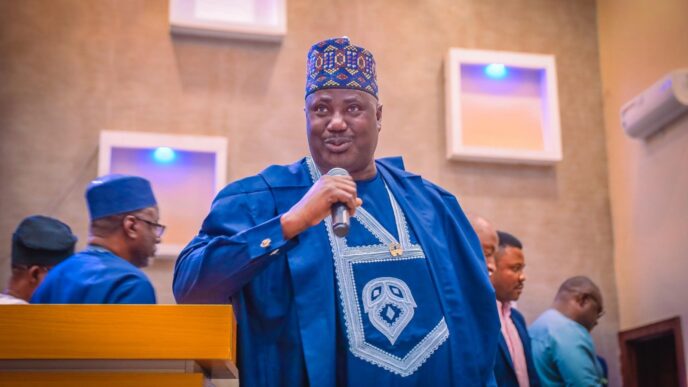A file picture of Titilola Vivour-Adeniyi, executive secretary of the Lagos State Domestic and Sexual Violence Agency (DSVA)
Titilola Vivour-Adeniyi, executive secretary of the Lagos State Domestic and Sexual Violence Agency (DSVA), says persons with disabilities (PWDs) are disproportionately affected by gender-based violence (GBV).
Vivour-Adeniyi spoke in Lagos on Thursday during an engagement with PWDs on sexual and gender-based violence.
She noted that PWDs regularly experience multiple forms of discrimination and exclusion due to many factors.
She said the Lagos state government is committed to addressing sexual, domestic, and gender-based violence against PWDs.
Advertisement
“These factors include physical and cognitive limitations, lack of awareness, and limited access to support services,” Vivour-Adeniyi said.
“This engagement provides a unique opportunity for us to come together, share experiences, and discuss strategies to address the challenges faced by persons with disabilities in relation to sexual and gender-based violence.
“We will explore ways to enhance prevention efforts, improve access to justice, and provide comprehensive support services tailored to the specific needs of this community.”
Advertisement
She called on PWDs to share ideas and suggestions on how to strengthen preventive and remedial measures against violence.
“Your insights, experiences, and perspectives are invaluable in shaping our response to this pressing issue,” she added.
“Together, we can create a more inclusive and equitable society where everyone, including persons with disabilities, can live free from violence and discrimination.”
Adenike Oyetunde-Lawal, general manager of the Lagos State Office for Disability Affairs (LASODA), noted that the focus on protecting PWDs from domestic and sexual violence was both timely and essential.
Advertisement
Represented by Faluso Adeolu, director of monitoring, evaluation, and orientation at LASODA, Oyetunde-Lawal said the event marked an important step towards creating safer environments for PWDs in their homes and communities.
She noted that many PWDs endure the reality of sexual and gender-based violence, often suffering in silence due to societal and cultural barriers.
She added that the programme sends a clear message that no one should be left behind, noting that the rights and dignity of every individual, regardless of disability, must be protected.
“This initiative is highly commendable as it provides PWDs with knowledge that can make a life-saving difference in times of crisis,” she said.
Advertisement
“This programme not only offers protection and support but also keeps PWDs informed. By raising awareness, you are encouraging individuals to speak up, break the silence, and seek justice.
“Together, we can create a future where PWDs are empowered, protected, and free from all forms of violence.”
Advertisement
Atinuke Odukoya, executive director of the Centre for Women’s Health and Information (CEWHIN), said the programme aimed at equipping PWDs with the knowledge and resources necessary to prevent and respond to sexual and gender-based violence.
“It is our collective responsibility to create a world where everyone, regardless of their abilities, is safe and free from all forms of gender-based violence,” she said.
Advertisement
“Today’s programme is designed to provide you with resources, information, support, and inspiration to tackle the issues of SGBV, hence, preventing occurrences within the person with disability clusters.
“Remember, you are not alone on this journey.
Advertisement
“Together, we can break down barriers, challenge misconceptions, and build a safer and more inclusive society for everyone.”
Add a comment
